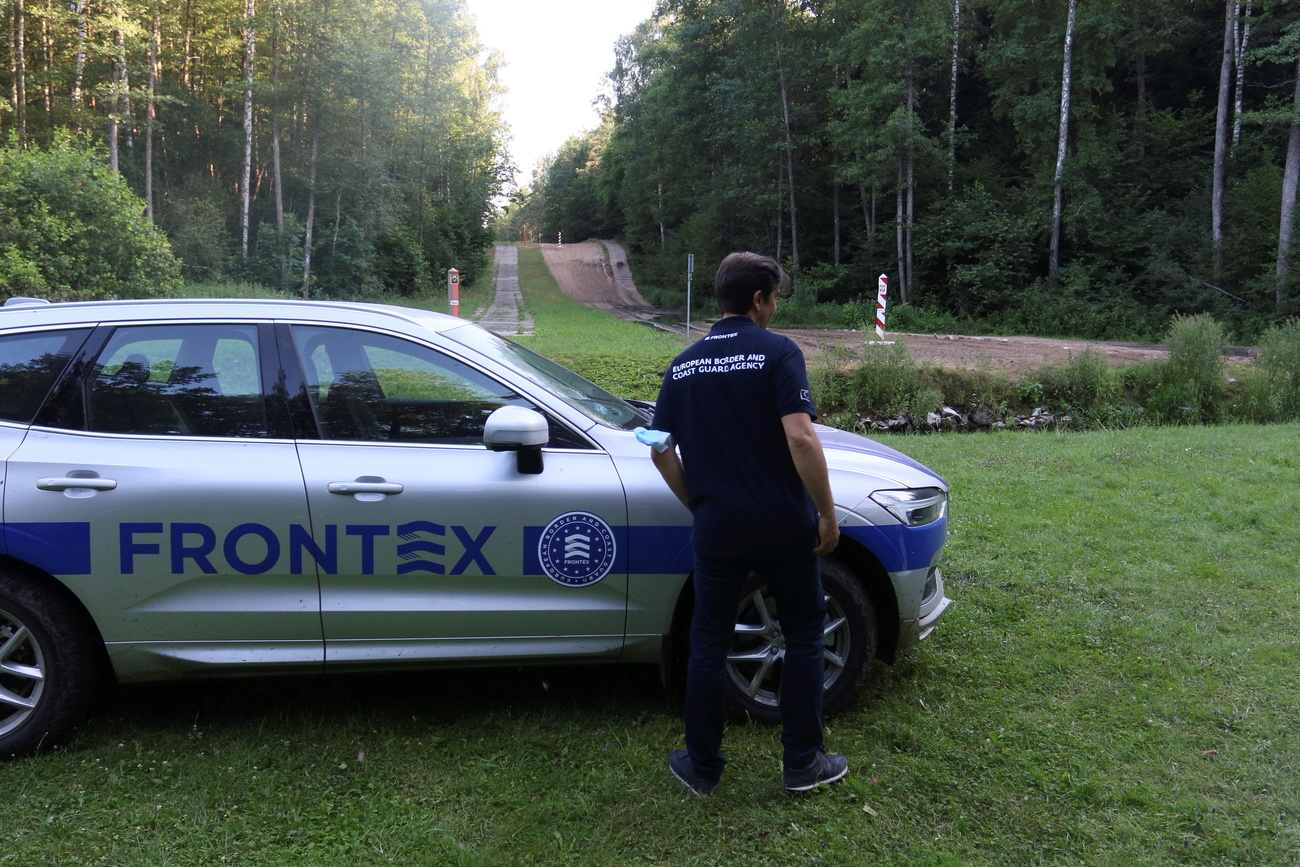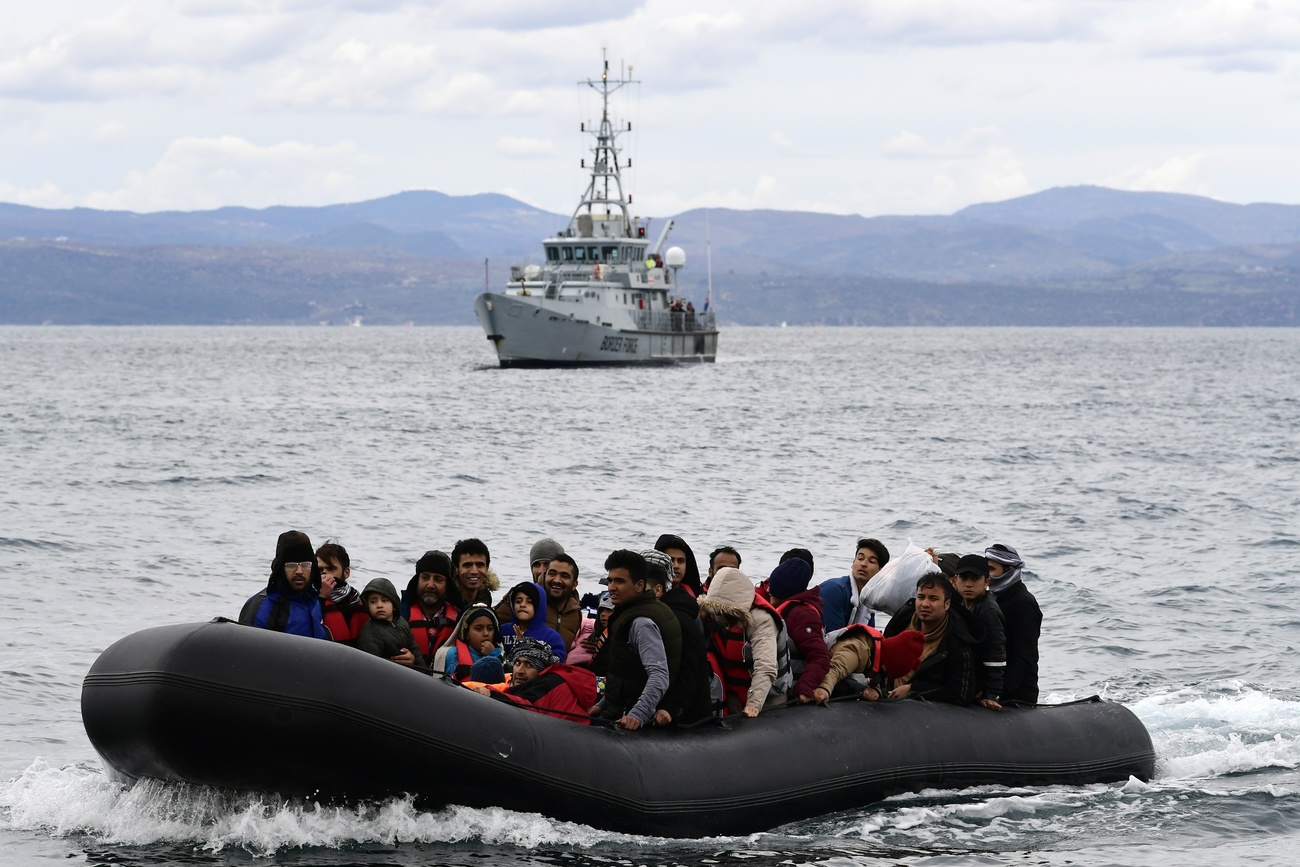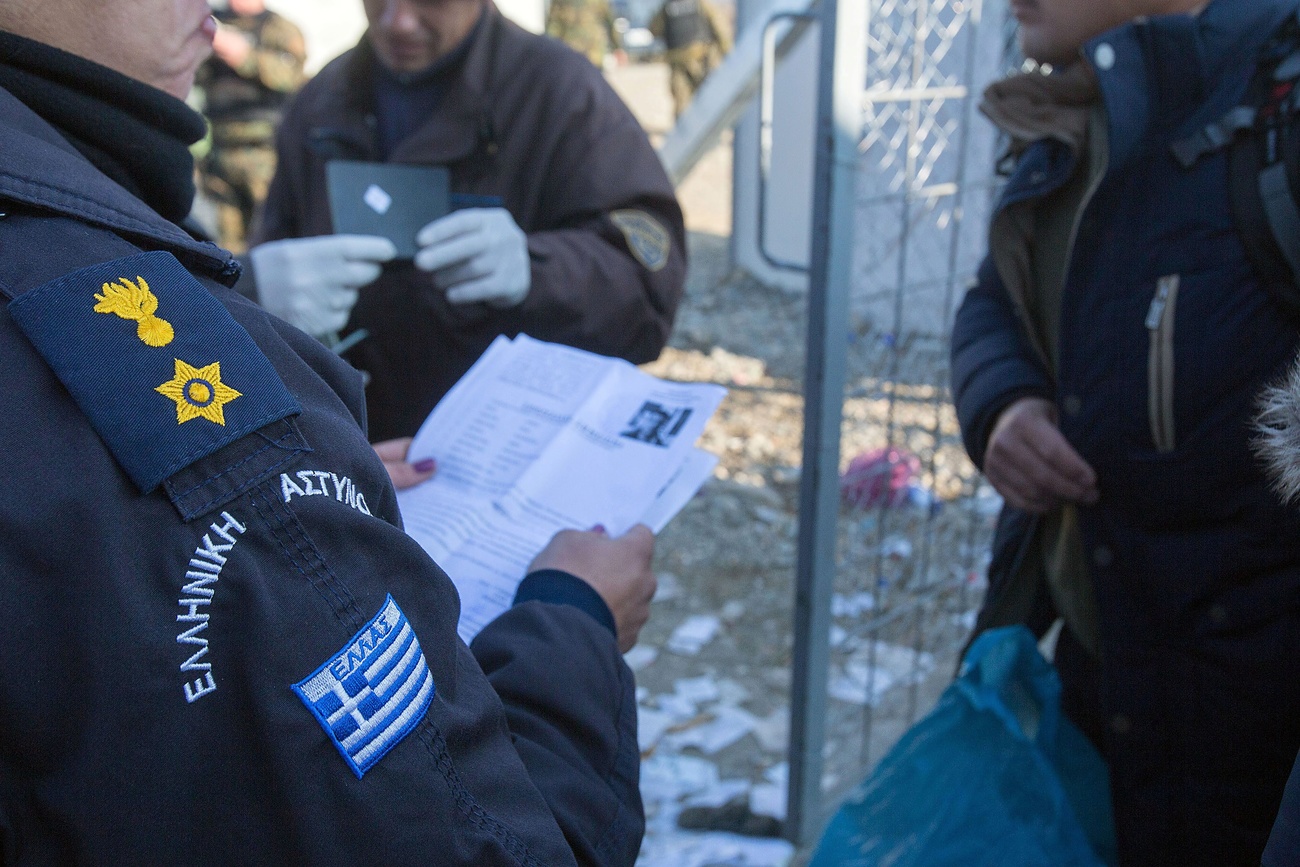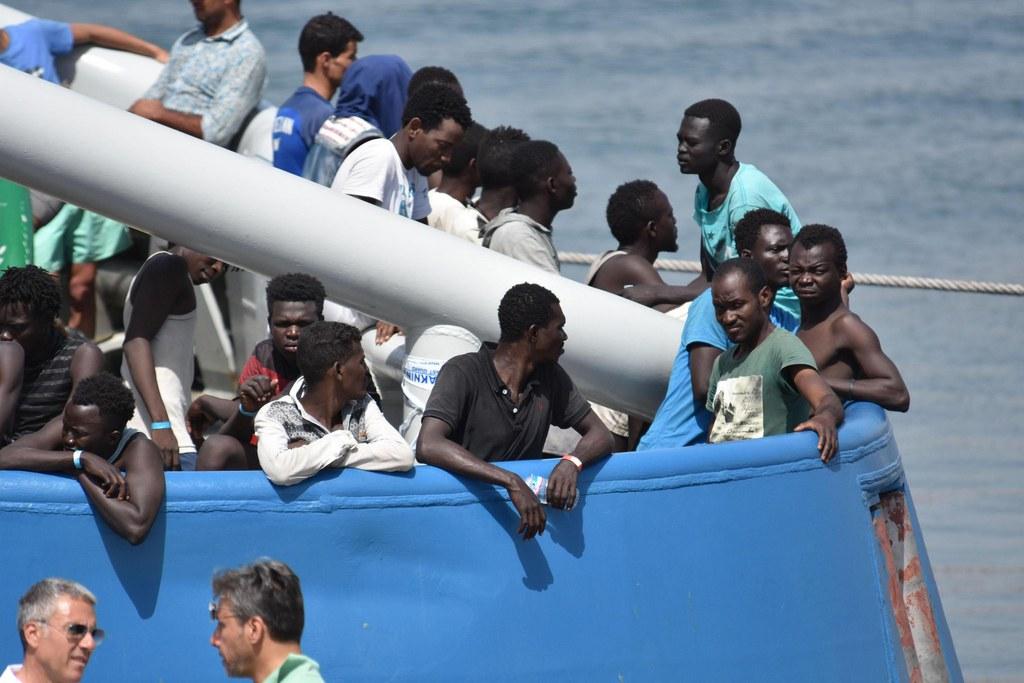Switzerland votes on its contribution to European border agency

Switzerland’s contribution to the European border and coastguard agency Frontex is being put to a vote on May 15. The referendum’s backers are against the migration policy that Frontex enforces and want Europe to be more open.
What’s the issue?
Switzerland is a member of the European Schengen area, within which people have the right to move freely. So it contributes to the funding of Frontex, an agency whose task is to patrol Europe’s external borders. The agency’s global budget has been increased, which means a rise in Switzerland’s contribution. The electorate will vote on this new funding on May 15.
What is Frontex?
FrontexExternal link is the European border and coastguard agency. Created in 2004, it patrols the external borders of the Schengen area, fights cross-border crime and manages migratory flows.
The agency is financed by the European Union (EU) and by EU non-members who are signatories of the Schengen Agreement: Switzerland, Iceland, Norway and Liechtenstein. Its headquarters are in Warsaw, Poland.
Frontex employs about 2,000 agents drawn from different member states. They work under the command of the national authorities in the state in which they are deployed and can be posted to the external Schengen borders or to third countries on the condition that these have signed an agreement with the EU.
What will Switzerland’s contribution be used for?
After the 2015 immigration crisis, European states decided to bolster Frontex by allocating more staff and financial resources to the agency. The objective is to reach 10,000 border guards by 2027. Switzerland’s contribution is to increase in stages, from six to 40 full-time positions at the agency.
Frontex’s 2022 budget is the highest of any European agency: it exceeds CHF750 million ($810 million) and will increase further over the coming five years. Switzerland’s financial contribution is proportional to its gross domestic product (GDP). In 2021, its contribution was CHF24 million and this should rise to CHF61 million in 2027, according to calculations by the governmentExternal link.
The planned expansion of Frontex aims to tighten control of Europe’s external borders by deploying more staff on the ground. The agency will also offer more support to member states sending asylum-seekers back to their countries of origin by helping to identify the relevant individuals and obtaining travel documents for them. The number of observers will also be increased to ensure that the fundamental rights of migrants are respected.
What’s the situation on Europe’s external borders?
Frontex concentrates its operations on two main areas: cross-border crime (the trafficking of drugs, arms and human beings) and handling the entry of people seeking asylum in Europe.
In 2014 and 2015, the number of asylum-seekers tripled in the Schengen area compared with previous years. Many were fleeing wars in Syria and Afghanistan. But since then, the number of people seeking protection at Europe’s borders has returned to the 2010 level, according to the latest figures from the United Nations refugee agency (UNHCRExternal link). This trend is reflected in Switzerland.
The decline in asylum applications is partly explained by the closure of borders in some Balkan countries, increased patrols (in part thanks to Frontex), and by the conclusion of agreements with third countries like Libya and Turkey to block the transit of migrants. The pandemic also caused international migration to slow down for almost two years.
Currently, Frontex agents are deployed in countries neighbouring Ukraine to help local authorities patrol the borders and manage the arrival of people escaping the war.
Who opposes Switzerland’s participation in Frontex?
The referendumExternal link was initiated by the Migrant Solidarity Network and other migrant support organisations, with backing from the Social Democrats, the Green Party, and other left-leaning parties. The committee does not want Switzerland to fund Frontex because it views the agency as a symbol of a migration policy based on isolation and violence. It criticises the “militarisation of borders” and the “criminalisation of migration”.
The referendum’s backers point out that several ongoing investigations are examining whether Frontex has put migrants in danger and has participated in operations to turn back asylum-seekers. This practice violates the Geneva Convention on refugees, because people who are turned away at Schengen’s external borders are prevented from applying for asylum. The European Parliament has also frozen part of Frontex’s 2022 budget, demanding that the agency improves protection of fundamental rights and sets up a mechanism to report serious incidents at the borders.
The committee is also against the EU agreements with Libya and Turkey, saying this is a form of external management of refugees wanting to come to Europe, blocking them in third countries where their security is not guaranteed. It calls for the establishment of secure migration routes.
Who’s in favour of funding Frontex?
The government wants to increase its contribution to Frontex because external border patrols also benefit Switzerland: migratory flows are under control and security is improved. The country will also benefit from Frontex’s support in turning away rejected asylum-seekers.
The government warns that if voters reject funding for Frontex on May 15, the country risks being expelled from Schengen. Freedom of movement would be limited and the whole economy would suffer. In addition, a rejection could strain the already difficult relations with the EU even further, the government warns.
A majority in parliament also supports the expansion of Frontex: the Radical-Liberal Party, the Centre Party and the Liberal Greens voted in favour of the agency’s expansion. They noted that this could help block a considerable amount of arms, drugs and human trafficking at the external borders. Lawmakers stressed that strengthening Frontex would also help boost the protection of migrants’ fundamental rights.
The group with the biggest representation in parliament’s House of Representatives, the right-wing Swiss People’s Party, is divided on the subject. Some members are fiercely opposed to Schengen and the free movement of people, while others support the principle of collaboration between states to better patrol Europe’s external borders.
Translated from French by Catherine Hickley

More
Explicit vs presumed consent: the Swiss referendum on organ donation
Translated by Catherine Hickley

In compliance with the JTI standards
More: SWI swissinfo.ch certified by the Journalism Trust Initiative





Join the conversation!